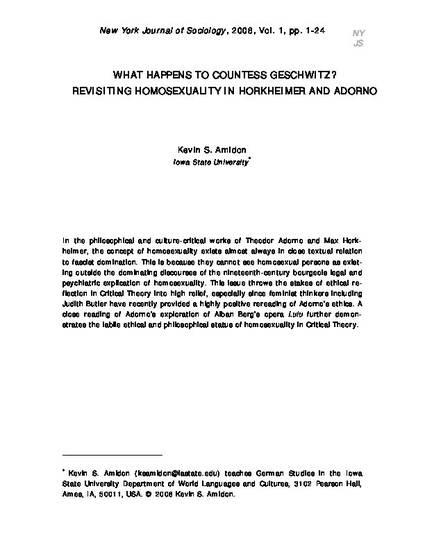
In the philosophical and culture-critical works of Theodor Adorno and Max Hork- heimer, the concept of homosexuality exists almost always in close textual relation to fascist domination. This is because they cannot see homosexual persons as exist- ing outside the dominating discourses of the nineteenth-century bourgeois legal and psychiatric explication of homosexuality. This issue throws the stakes of ethical reflection in Critical Theory into high relief, especially since feminist thinkers including Judith Butler have recently provided a highly positive rereading of Adorno’s ethics. A close reading of Adorno’s exploration of Alban Berg’s opera Lulu further demonstrates the labile ethical and philosophical status of homosexuality in Critical Theory.
Available at: http://works.bepress.com/kevin_amidon/3/

This article is from New York Journal of Sociology 1 (2008): 1. Posted with permission.